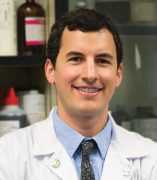
05 Oct Unnecessary Antibiotics For Dental Prophylaxis Cause Significant Adverse Events
MedicalResearch.com Interview with:
Alan E. Gross, PharmD
Clinical Assistant Professor
University of Illinois
Chicago, IL
MedicalResearch.com: What is the background for this study?
Response: Dentists prescribe 10% of all outpatient antibiotics. Most of this prescribing is for infection prophylaxis prior to dental procedures.
Our prior research has found that 80% of prescriptions for dental prophylaxis is unnecessary. Although antibiotic prophylaxis prior to dental procedures is often for a short course (e.g. one time amoxicillin dose), there may be patient harm associated with this.
MedicalResearch.com: What are the main findings?
Response: We found that approximately 4% of patients who received unnecessary antibiotic prophylaxis prior to their dental visit experienced a serious adverse event. Most of these adverse events were related to either an ED visit or allergy. Less commonly we saw patients experienced anaphylaxis or C. difficile infection – these two events were rare however are very serious. Importantly, dentists are the top outpatient prescriber of clindamycin and we found that use of this agent was associated with a higher risk of experience and adverse event compared amoxicillin.
MedicalResearch.com: What should readers take away from your report?
Response: Unnecessary antibiotic prophylaxis prior to dental visits may be associated with patient harm. This, combined with our previous research that found unnecessary antibiotic prophylaxis was common, demonstrate a need to improve antibiotic prescribing for infection prophylaxis in dentistry. To improve antibiotic prescribing, a collaboration between dentists, physicians, pharmacists and patients needs to occur. The CDC core elements of outpatient antibiotic stewardship apply to dentistry and can serve as a model to develop dental antimicrobial stewardship programs. This is an effective approach to improve and standardize prescribing as we have demonstrated in our earlier study (Gross AE, Hanna D, Rowan SA, Bleasdale SC, Suda KJ. OFID. 2019;6(3):ofz067) where we decreased antibiotic use by ~70% for the treatment of oral infections.
MedicalResearch.com: What recommendations do you have for future research as a result of this work?
Response: There is a need to characterize the reasons behind this unnecessary prescribing and the optimal methods to improve prescribing.
Citation: ID week 2019
Friday, October 4 2019
[subscribe]
Last Modified : [last-modified]
The information on MedicalResearch.com is provided for educational purposes only, and is in no way intended to diagnose, cure, or treat any medical or other condition. Always seek the advice of your physician or other qualified health and ask your doctor any questions you may have regarding a medical condition. In addition to all other limitations and disclaimers in this agreement, service provider and its third party providers disclaim any liability or loss in connection with the content provided on this website.
Last Updated on October 5, 2019 by Marie Benz MD FAAD
